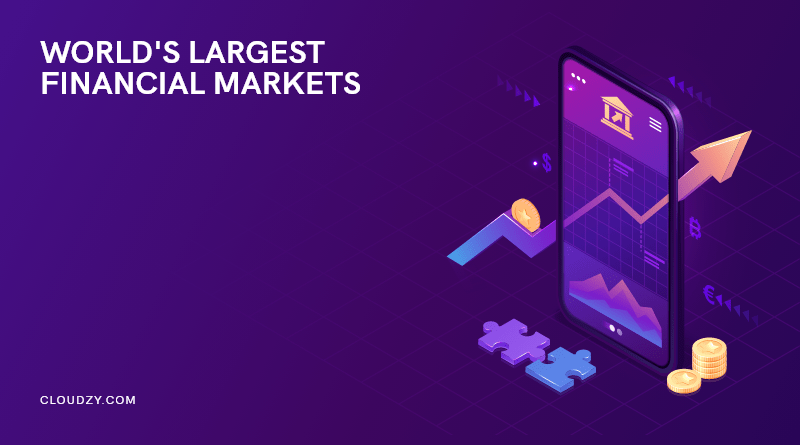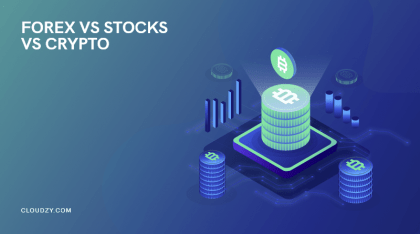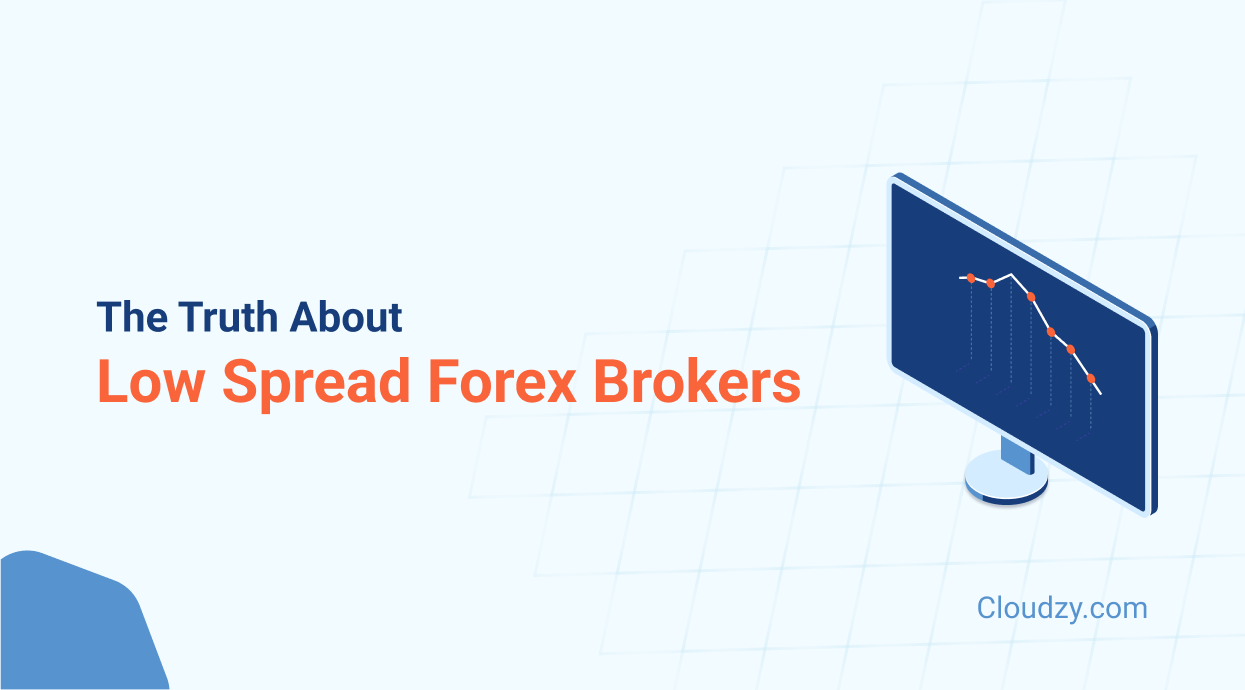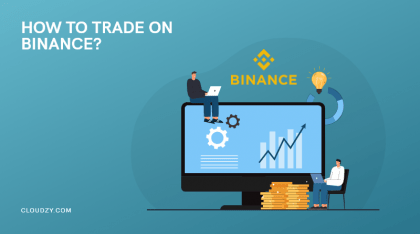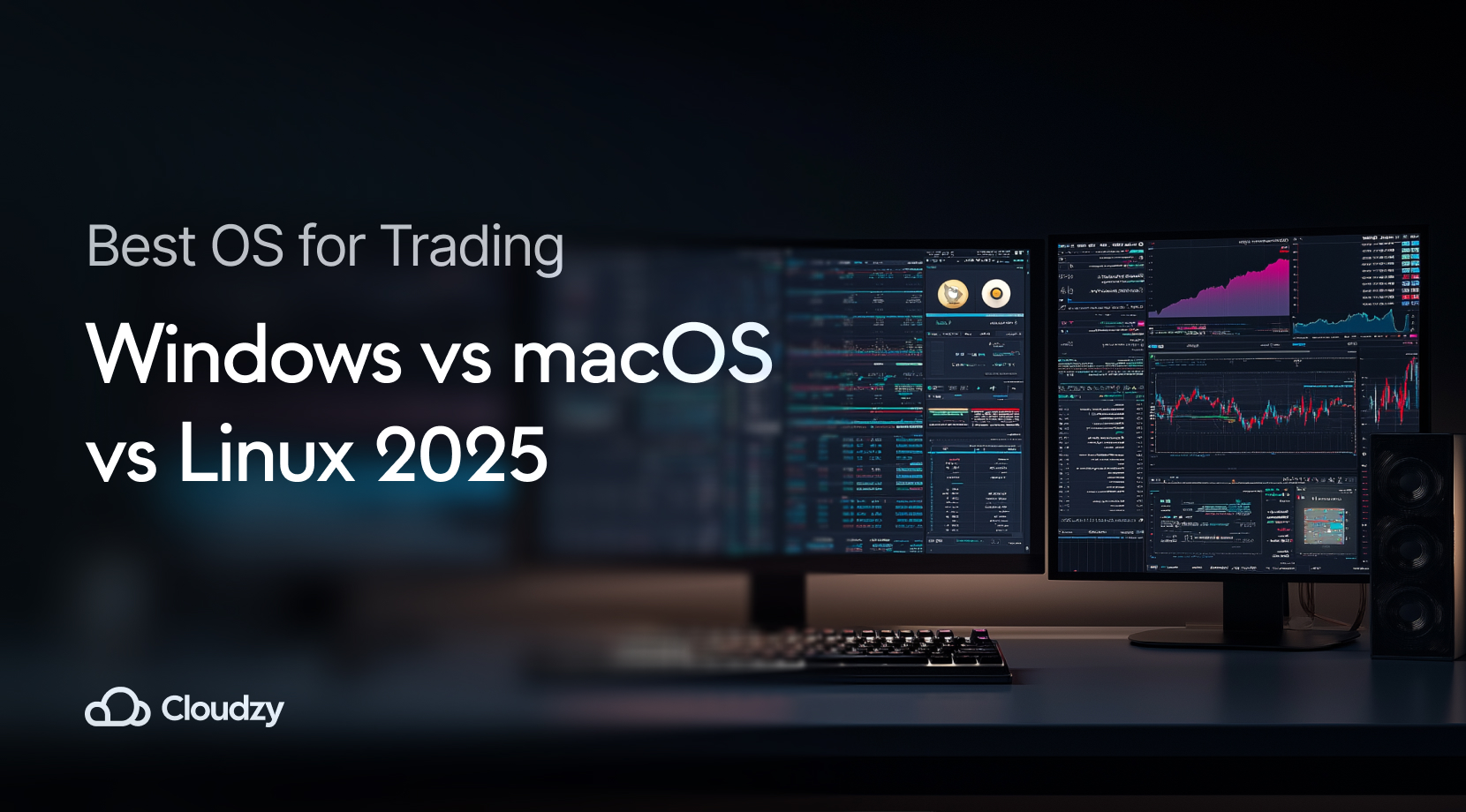- Why we Trade: What's the Point of Trading in Markets?
- Estimation Terminology: Liquidity, Market Cap, and Volume
- David vs. Goliath: Does the Size of Markets Really Matter?
- Versatility: Should I Trade in Multiple Markets at Once?
- The Winner: Forex
- Ride or Die: Cryptocurrency
- Path of Least Resistance: Stocks
- Learning the Ropes: What is the Best Financial Market for Beginners?
- Conclusion
- FAQ
The global state of finances nowadays has the largest amount of value in the history of the human race. This raised the standards of living around the world to unprecedented heights via indirect means. It has also led to direct cause and effect with regard to the opportunities that everyday folk have to make money. Today we have access to numerous different markets, each with its own respective qualities that allow us to exploit them to make money. The craze to make money from home and the phenomena of “passive income” has already become embedded in modern culture.
But while the plurality of these markets presents more options and chances to make money, it also can lead to confusion. Too many options often cause people to lose their concentration, be fed misinformation, and potentially suffer financial losses as a result of entering the wrong market. This is why finding the right market for you is important. One of the main ways to determine the overall reliability of a market is to determine its size. A larger market translates to more active traders and participants, which in turn means the market is trustworthy and potentially more profitable. In this article, we will go over the world’s largest financial markets, their properties, and their unique qualities in order to try to find the right one for you.
Why we Trade: What’s the Point of Trading in Markets?
A market, by definition, is a place in which a transaction takes place. In olden times this definition was confined to a physical marketplace where participants would gather. With the advent of technology, the market is no longer limited to the physical world, and many online markets have risen to prominence and even dominance over traditional markets. Each market has a fluctuation in the value of the traded commodities. This means that a careful observer can exploit these fluctuations to buy or sell their own commodity at a price different than when they purchased the said commodity in order to generate profits.
This simple, fundamental concept is the main reason the market is one of the oldest human institutions in the world. It is also the main reason that so many people are active in different markets: to simply generate profits for themselves. As we already mentioned, different markets have different rules and qualities, and one of the main ways to judge how profitable they can be, is to judge them by their size, but even determining the size has difficulties. How do we go about determining the size in order to find the most profitable trading markets?
Estimation Terminology: Liquidity, Market Cap, and Volume
In order to determine the overall size of any market, we have to familiarize ourselves with the two key concepts of liquidity and volume. These two are often mistaken for one another, but we are going to do our best to clearly define them in a way that avoids confusion and enables you to correctly understand a market’s size and quality by assessing the two factors.
Liquidity
The limit to which a certain asset can be traded in the form of buying and selling without the transactions affecting its value is referred to as market liquidity. It simply refers to how quickly you trade an asset for pure cash. All financial markets have liquidity, but some have it more than other markets.
When traders discuss liquidity, they are usually referencing market liquidity. Market liquidity, therefore, constitutes how well a certain market allows traders to purchase and sell assets at non-volatile prices. These qualities will be distinguished by high volumes of trade and narrow bid-ask distribution. A market with more liquidity that can be traded is often even more appealing than a larger market with less liquidity.
Volume
In the different financial markets of the world, Volume is the primary metric for estimating a market’s size.Volume shows the certain amount that a certain asset has been traded during a certain amount of time. Index of volume is key in understanding the amount of liquidity and volatility that a certain market or asset has; therefore, it is one of the most important tools with which traders analyze the market.
When an asset is traded, this trade involves a buying party and a selling party. And each of these exchanges in turn, make the volume go higher. When using volume, remember that the volume number is not showing the number of transactions but the amount of assets that are being traded. So, for example, if 10 buyers each buy one share, the result would be identical to if a single buyer buys 10 shares.
Whenever a market can be considered active, the volume will also be high. When the market in question is considered ‘inactive,’ the trade index of volume will be low. Naturally, when the market has considerable volatility, the volume of trading will also be more significant.
David vs. Goliath: Does the Size of Markets Really Matter?
Yes absolutely. You wouldn’t find a single veteran trader who would not give you the obvious but precious advice of trading in the world’s largest financial markets. Now many successful traders have made a fortune by trading in smaller markets. But it’s important to keep in mind that these are secondary activities that these traders usually undertake while their main source of trading income remains on the larger markets. And even if that is not the case, those are exceptions rather than the rule.
Trading in larger markets means more access to more commodities of value. The patterns of activity in the larger markets are also easier to understand. Furthermore, the sources, documentation, and educational means of learning the ropes in the larger markets are also significantly more accessible to beginners. So by all accounts, size does matter when we are looking to choose a market to trade in.
Versatility: Should I Trade in Multiple Markets at Once?
As we already mentioned, the number of markets out there has grown by a considerable margin. Many traders wonder if they should trade in multiple markets at the same time or not. Generally, Diversifying your portfolio is a good thing. It reduces the chances of losses by eliminating the scenario where all your investment in a single asset will go down as a result of the said asset plummeting. With that said, it’s best to do some research before entering new markets to understand their relationship with the markets you already have an investment.
Some assets have a corresponding relation with each other. For example, during inflation periods, when stocks go down, gold and oil hold strongly and work perfectly as an inflation hedge. So having money in all of these markets can help or damage your trades depending on the volume of your investment per asset. But generally, investing and trading in different markets should not be an issue. Diversifying your portfolio is always good. Now, let’s get to evaluating five of the most profitable trading markets in the world, as well as their pros and cons.
The Winner: Forex
Forex stands for the foreign exchange market. It is a market where fiat currencies are traded. Fiat currencies are national currencies that are backed by national banks of different countries. These currencies are the ones that we use in our everyday lives to complete transactions. Trading these currencies against each other constitutes forex trading. Forex is the world’s largest financial market both by volume and by liquidity. It is also the most famous and accessible market, and as such, it deserves to declare the overall winner among the markets. You can learn more about the forex market and the steps to becoming a forex trader here.
Size
As we already said, it is the world’s largest financial market. Forex has an incredible daily trade volume of over 6.6 trillion dollars. This is mainly due to the fact that these currencies are utilized by different powerful governments to conduct the most important of trades, and the people of the world also resort to fiat currencies for their everyday trades and transactions. These currencies are usually backed by a national reserve that guarantees their value, and as far as assets go, these are the bread and butter of traders. The huge volume also translates to a lot of liquidity which again makes Forex the perfect marketplace.
 Want to Improve your Trading?
Want to Improve your Trading?
Give yourself a better chance at the Forex market by hosting your trading platform right next to your broker.
Get a Forex VPSAdvantages
These are the main advantages of trading in the forex market.
Accessibility
Forex is the largest market in the world, and as such, educational resources and the learning curve is not that steep. Data on Forex is quite accessible, and anyone can start to learn the ropes rather quickly.
High Liquidity
The high daily trading volume and the huge amounts of value that are traded on Forex also make it a highly liquid market. This directly leads to more opportunities for traders to make larger profits.
Global Market
Forex is a global market that has four primary trading sessions. These are the Sydney, Tokyo, London, and New York sessions that open and close at different hours. This global status leads to the market being available almost all the time.
Diversity of Options
As opposed to markets such as oil and gold, where you will have to deal with a single commodity as your only option, in Forex, you have many options. However, it is better to stick with more traditionally proven currency pairs such as USD/EUR, USD/JPY, AUD/USD, and USD/GBP.
Disadvantages
These are the main disadvantages of the forex market.
Large Initial Fund Needed
When trading in Forex, you can start with an initial fund as low as $500 to $1000. However, the returns are very unlikely to exceed more than 205 per year. You’ll either need to use risky leverage trading methods or start out with a larger initial fund.
Fewer Residual Returns
While Forex is not as risky as the crypto market, you can suffer losses during a calendar year that makes the forex market have fewer residual returns compared to stocks or bonds. So be aware of the potential of the market before entering.
Multi-Dimensional Market
In forex trading, knowing your way around is about much more than technical analysis. Since currencies are nationally backed, fundamental analysis of world events and news is also needed if you are going to become a good forex trader.
Lack of Regulation
The international performance of Forex makes it very hard to centrally govern and regulate. This means that your mistakes and potential problems are going to be really hard to pursue legally. On top of that, Forex is already known for its “professional vs. amateur” environment.
Ride or Die: Cryptocurrency
If somehow you never heard of terms like trading and leverage before, no doubt the recent decade featuring the ongoing crypto storm made you somewhat familiar with these terms. The crypto market is a rapidly growing market featuring the decentralized system of blockchain, which heralds a decentralized financial system in the future. There are countless currencies in the market. The market itself is also incredibly volatile, which earns it the “wildcard” spot on today’s list. With cryptocurrency trading, it’s like going all-in on a game of poker, the regulation is yet to arrive, and everything is always going at maximum speed.
Size
Despite being the youngest market on today’s list, the cryptocurrency market is by no means small. The market itself is highly volatile. This means that estimating the volume, market cap, and liquidity at different times is going to have vastly different results compared to a market like Forex. But the decade-old market with an all-time record of over 2 trillion dollars in market cap has shown that despite the fact that it is not the largest market in the world, it has immense liquidity and has an incredible potential for making profits for traders.
 Trade Freely
Trade Freely
Get rid of all the red tape and trade crypto without restrictions — get minimal latency trading VPS in restriction-free locations.
Get a Binance VPSAdvantages
These are the main advantages of trading in the cryptocurrency market.
High Liquidity
There isn’t going to be a time when you decide to trade in the cryptocurrency market, and at least one of the options doesn’t have high liquidity. The market is also inherently volatile, which makes higher liquidity more common throughout the year.
Highly Volatile
To many beginners, volatility is a huge problem. For the veteran trader who knows his way around the market, the instances of high volatility are money-making opportunities. The crypto market is perhaps the most volatile market in the world.
No Downtime
Even with the global forex market, there are times that sessions close down, and you have to wait for opportune moments to start trading. The crypto market is always running, and there is never a bad time to trade.
Unbreachable Security
While there are some phishing scams in the crypto market, the blockchain technology itself is unbreachable, and one of the main selling points of cryptocurrencies as a concept is their undeniable prowess as one of the most secure financial instruments in the world.
Disadvantages
These are the main advantages of trading in the cryptocurrency market.
Intense Regulation is Coming
Cryptocurrency has caused outrage in many regions of the world, thanks to its decentralized nature. Many major political bodies are already working to limit and regulate these currencies and the market. This could negatively impact the market in the future.
No Governing Body
This is one of the main reasons many argue that regulations should be in place for crypto. Crypto is even more barren in governing and regulation than Forex. A mistaken transaction? Good luck getting it reversed with no governing body present.
Too Many Untrustworthy Currencies
As we already mentioned, there are a lot of phishing scams going on in the crypto market in the form of makeshift currencies that appear with the purpose of gathering money and promptly disappearing with the said money. Be careful what currencies you use to trade.
High Risk
Even with a store of value currency like Bitcoin, the risks of the market are high. A sudden political announcement on the regulation of the market in the USA or even an Elon Musk tweet is enough to make the market go down as much as 30% to 40%.
Path of Least Resistance: Stocks
It’s important to note that there is no single stock market. Instead, we have a set of stock markets in different regions, each with its own liquidity, volume, and market cap. Different stock markets have different overall values and reputations. Their hour of activity also differs based on the location they are at, and they have different listings of company stocks that they broker to the customers. A stock market is where you can trade the stocks of publicly traded companies, as well as bonds and securities. The differences in prices that come about as a result of political events and the performance of the company itself are the key factors that result in profit or loss for traders.
Size
As we said, there is no single global stock market. Different stock markets have different liquidity and volume at different times. In total, we have over 60 major stock markets around the world. New York Stock Exchange, NASDAQ, Tokyo Stock Exchange, Shanghai Stock Exchange, and Hong Kong Stock Exchange are the largest stock exchanges in the world order. To give you a better understanding of how large these markets are, consider that the market capitalization of the New York Stock Exchange, which is responsible for more than 40% of the global stocks, was over 25 trillion dollars. That makes the overall market cap of all 60 markets around 62 trillion dollars.
Advantages
These are the main advantages of trading in famous stock markets around the world.
Diverse Means of Investment
In the stock market, you have access to a set of special trades that are not available in other markets. These include initial public offerings, follow-up public offers, bonds, securities, and other unique methods of investing and trading.
Good Regulation
Stock markets are all heavily regulated around the world and offer the best customer protection any market can offer you. This makes the market more appealing to those who want a safe space to trade strictly by the rules.
High Liquidity
We already covered the incredibly massive value of the NYSE and its implications on the overall value of the stock market globally. There will always be a highly liquid stock market for you to trade in, thanks to the sheer market cap at play.
Dividends
Certain companies offer dividends on their stocks. These are usually incredibly large corporations that can afford to pay a percentage of your purchase in the form of yearly dividends back to you. This is unique to the stock market and an excellent method of generating passive income.
Disadvantages
These are the main disadvantages of trading in famous stock markets around the world.
Timed Market
Stock markets are regional markets that open and close at certain hours, depending on where they are located. So you wouldn’t have the permanent access that you would have to the forex or crypto market here.
Market Manipulation and Hedge Funds
Insider info and trading among the large hedge funds are global phenomena that can be observed across all large stock markets. This manipulation usually leads to the benefit of the insiders and hedge funds at the expense of retail traders and normal people.
Tough Learning Curve
Learning the ways in which each stock market works is an incredibly demanding task and can take years to master. Generally, it is advised that traders stay away from intense stock trading until they are seasoned traders. However, long-term investing is still feasible for lesser skilled traders.
Unpredictability
Even the most veteran and skilled of traders, even the infallible hedge funds and insiders themselves can fall prey to the incredible unpredictability that different stock markets around the world possess. Keep this in mind when deciding to buy shares in a stock market.
Learning the Ropes: What is the Best Financial Market for Beginners?
With a quick look at the qualities of the three different markets that we reviewed, we can clearly see that if you are an aspiring trader, the best option for you is to start trading in the forex market. It has a considerably easier set of considerations and a less steep learning curve to master. The volatility of the forex market is easy to predict based on the patterns that it follows, and the overall liquidity is more than enough for beginners to make meaningful gains.
As we already said, it is the world’s largest financial market. This makes it accessible and easy to enter. The overall atmosphere of the market is also less punishing and more forgiving of early mistakes that you may make. The market also features diverse trading options that act as the cherry on top. Learning the basics of the forex market can also act as a jumping pad to learning more advanced markets such as the stock market. It’s safe to say the Forex market is, without a doubt, the best market for beginner traders.
Conclusion
All of the markets we mentioned can be reliable in their own way. However, the forex market is not only the best market to get into as a beginner. It also acts as the best market with the highest overall potential for traders of all skill levels.
Many traders want to be close to the major trading sessions of the forex world, such as Sydney, Tokyo, New York, and London, in order to execute online trades with minimal latency and ping. Since moving around the world just for optimized latency can be a major hassle, you can instead use the VPS technology to remotely connect to a computer located close to the major forex trading centers of the world. You can also see a list of the Best Forex VPS Providers in 2022.
Cloudzy offers premium, tailored Forex VPS services with pre-installed MT4 and MT5, specifically designed for seamless Forex trading. Enjoy ultra-low latency, 99.9% uptime, cloud support, and the confidence of a 7-day money-back guarantee—all built to optimize your trading experience.
FAQ
What is the Largest Stock Market in the World?
The forex market remains the most liquid market in the world with the highest volume. The daily volume of trade in the forex market is around 6.6 trillion dollars which makes all the other markets, including the combined might of the different stock markets, pale in comparison.
Which Forex Market Session has the Largest Volume?
While all four of the major forex trading sessions have a good volume and volatility, it is understood that the New York session offers the highest daily volume, especially when it overlaps with the London session. New York is also the largest financial market in the forex world alone.
How Big is the Crypto Market Compared to the Stock Market?
Crypto is a shadow compared to the $122 trillion global equity market that was evaluated in October 2021. However, with an all-time high total value of 2 trillion dollars, it’s not in a vastly different universe to the U.S. equity market, which is valued at $50 trillion, or the E.U. equities market, which stands at $14tn. Considering it is only a decade-old market, it has the potential to soon compete or even overtake these giants of traditional finance.
